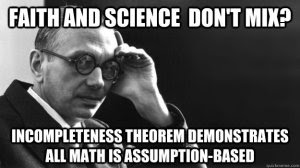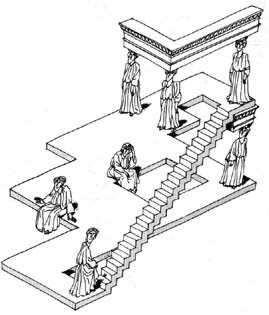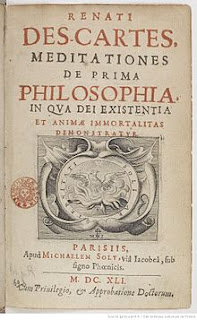Find the true explanation for "Neuroscience of free will" experiment
Main content:
In this experiment, although Marcus is the left or right clicker, but John looks at his brain, knows him in advance for 6 seconds, which button he will press. That proves that Marcus's consciousness is not the one who decides, the decision is made first, then 6 seconds he becomes aware and presses the button.
There is a force related to karma - that is the subconscious. Perhaps the subconscious and Karma have decided our consciousness.
In the video without the full explanation, we need to study further as follows:
1 / The profound basis of Karma (karma) of a collective or an individual is an effective decision, full of power to perform. That is the case where Buddhism says it is full of conditions, then the phenomenon or the result must appear. If our consciousness (individual) takes the same decision with karma, it will be successful, the result will come as expected.
2 / Consciousness of the individual can also take a bad decision, that is to take the idea of hope, without predestined relationships, there is no basis at all. Thus, the result will not be as expected, ie failure. This explains why someone succeeds, some fail.
List of articles related to this topic: https://energy-medicine-blog.blogspot.com/p/subconscious-mind.html
There are many other experiments that give the same results as this experiment. For example, the Libet experiment, which I will discuss below by Wiki.
Mathematics has enough power to show the contradiction of other objects it does, but itself contains contradictions.
For those who are not specialized in mathematics, perhaps they must understand the idea of the theorem.
In summary: The mathematical system wants to be full, it must be contradictory, and want not to be contradictory must be incomplete.
The theorem also shows: Our perception of the world is like blind people in the Blind men and an elephant story
This contradiction was developed in the Impossible object model
Mathematics will recognize the results of phenomena in the above experiment (the video above) is a reasonable result of nature.
Impossible object mechanism for Neuroscience of free will phenomenon
Explain to the diagram:
F(x, y, ws,...), G(m, n, x,...), E(p, q, k,...),... They are functions with variables that are events or objects. With the convention that functions will give values by going from the phenomenon set to the set of numbers
D, E, G are additional sets of phenomena. It is the factor that ensures non-contradiction.
The diagram shows that WS is not the one who decides for the September 11, 2001 terrorist attacks. If WS decides it will be a contradiction, because the other variables are denied. Moreover, it contradicts the whole process of time in the law of cause and effect.
Add a impossible object model:
What is the final explanation for the problem of Neuroscience of free will by mathematics?
- My personal explanations of the "Neuroscience of free will" profile - explained based on different academic disciplines - different angles.
- Complete profile and link about "Neuroscience of free will" on the wiki
- Summary and best explanation of "Neuroscience of free will"
--------------------------
A. My personal explanations of the Neuroscience of free will profile - explained based on different academic disciplines - different angles.
First, see a BBC experiment on Neuroscience of free will: Brain Scans Can Reveal Your Decisions 7 Seconds Before You “Decide”
Karma Decides Consciousness - Free Will and Neuroscience
In this experiment, although Marcus is the left or right clicker, but John looks at his brain, knows him in advance for 6 seconds, which button he will press. That proves that Marcus's consciousness is not the one who decides, the decision is made first, then 6 seconds he becomes aware and presses the button.
There is a force related to karma - that is the subconscious. Perhaps the subconscious and Karma have decided our consciousness.
In the video without the full explanation, we need to study further as follows:
1 / The profound basis of Karma (karma) of a collective or an individual is an effective decision, full of power to perform. That is the case where Buddhism says it is full of conditions, then the phenomenon or the result must appear. If our consciousness (individual) takes the same decision with karma, it will be successful, the result will come as expected.
2 / Consciousness of the individual can also take a bad decision, that is to take the idea of hope, without predestined relationships, there is no basis at all. Thus, the result will not be as expected, ie failure. This explains why someone succeeds, some fail.
List of articles related to this topic: https://energy-medicine-blog.blogspot.com/p/subconscious-mind.html
There are many other experiments that give the same results as this experiment. For example, the Libet experiment, which I will discuss below by Wiki.
Explain to Neuroscience of free will from according to the mathematical worldview
What seems to be the most logic but it is non-logical and imperfect. This is demonstrated by Gödel in incompleteness theorems.Mathematics has enough power to show the contradiction of other objects it does, but itself contains contradictions.
Gödel
This is a quote for mathematicians:First Incompleteness Theorem: "Any consistent formal system F within which a certain amount of elementary arithmetic can be carried out is incomplete; i.e., there are statements of the language of F which can neither be proved nor disproved in F." (Raatikainen 2015)
Second Incompleteness Theorem: "Assume F is a consistent formalized system which contains elementary arithmetic. Then ." (Raatikainen 2015)
Gödel's incompleteness theorems are two theorems of mathematical logic that demonstrate the inherent limitations of every formal axiomatic system capable of modelling basic arithmetic. These results, published by Kurt Gödel in 1931, are important both in mathematical logic and in the philosophy of mathematics. The theorems are widely, but not universally, interpreted as showing that Hilbert's program to find a complete and consistent set of axioms for all mathematics is impossible.
The first incompleteness theorem states that no consistent system of axioms whose theorems can be listed by an effective procedure (i.e., an algorithm) is capable of proving all truths about the arithmetic of the natural numbers. For any such consistent formal system, there will always be statements about the natural numbers that are true, but that are unprovable within the system. The second incompleteness theorem, an extension of the first, shows that the system cannot demonstrate its own consistency.
Employing a diagonal argument, Gödel's incompleteness theorems were the first of several closely related theorems on the limitations of formal systems. They were followed by Tarski's undefinability theorem on the formal undefinability of truth, Church's proof that Hilbert's Entscheidungsproblem is unsolvable, and Turing's theorem that there is no algorithm to solve the halting problem.
For those who are not specialized in mathematics, perhaps they must understand the idea of the theorem.
You can temporarily understand the idea of that theorem as follows:
A mathematical system with finite axioms, will not be able to fully describe the world around. Consequently, there will always be conflicts within that mathematical Logic system when the number of axioms is finite.
A non-contradictory mathematical system is a system that must accept itself that is always lacking in axioms. This means that adding axioms to the Mathematical Logic system will ensure non-contradiction.
The theorem also shows: Our perception of the world is like blind people in the Blind men and an elephant story
Another model to describe Incompleteness Theorem's is the Penrose stairs model
Mathematics will recognize the results of phenomena in the above experiment (the video above) is a reasonable result of nature.
Impossible object mechanism for Neuroscience of free will phenomenon
I will take an example of a horrifying event, the September 11, 2001 terrorist attack in the United States.
There are 2 possibilities for this case:
There are 2 possibilities for this case:
- The 9/11 terrorist attacks were carried out by outside organizations.
- The 9/11 terrorist attacks are a staged plot. In this case, no plane crashed into the WTC building
There will be no analysis on the problem of conspiracy theory here. However, one thing is certain: someone will make a decision for this terror. Suppose that person is an organization or an individual, denoted as WS
Marcus (on video) will play the role of instigator in the terrorist incident. He will make the decision to choose blue or red.
Marcus (on video) will play the role of instigator in the terrorist incident. He will make the decision to choose blue or red.
And this is the diagram that math will talk about "Neuroscience of free will"
Explain to the diagram:
F(x, y, ws,...), G(m, n, x,...), E(p, q, k,...),... They are functions with variables that are events or objects. With the convention that functions will give values by going from the phenomenon set to the set of numbers
D, E, G are additional sets of phenomena. It is the factor that ensures non-contradiction.
The diagram shows that WS is not the one who decides for the September 11, 2001 terrorist attacks. If WS decides it will be a contradiction, because the other variables are denied. Moreover, it contradicts the whole process of time in the law of cause and effect.
Add a impossible object model:
What is the final explanation for the problem of Neuroscience of free will by mathematics?
The result of the experiment says that we are in mathematical reality - a reality of our minds. Because if not, the results of the experiment will have a pattern that is not the same as the impossible object model
Explanation for "Neuroscience of free will" in view of modern physics
There are many theories in modern physics. All these theories are imperfect, as well as incomplete mathematics and theorems. There are many theories in modern physics that time does not exist, time is just an illusion of the mind.
See more: The Illusion of Time and Space
In the movie, everything is known by the person watching or the film's author.
This idea was put forward by a science fiction novelist (I don't remember the writer's name), later developed by physicists into theoretical physics.
Explain the phenomenon of "Neuroscience of free will" according to modern physics:
This is an explanation (reasoning counter-argument): If Marcus does not make a decision 6 seconds ahead, and in case he mastered his will, deduce: There is no film for his life. (absurd - because contrary to the hypothesis). Reasonability: Marcus does not master its will. And that is the result of experience.
Note: There are many other perspectives to explain this experiment, but because of limited time. Moreover, I have not thoroughly investigated other explanations. So temporarily the explanation will stop here. If there are new explanations, I will update it in this article.
B. Complete profile and link about "Neuroscience of free will" on the wiki: Neuroscience of free will
C. Summary and best explanation of "Neuroscience of free will"
Review the explanations for Neuroscience of free will
First, it's an incomplete explanation, which uses the concept of Karma in Buddhism to talk about "Neuroscience of free will". The boundless Dharma, the dualistic reasoning arguments - relative - will not be able to understand the boundless Dharma. The explanation must stop.
Next are the explanations from the perspective of modern mathematics and physics. Those explanations are not a complete and thorough study. That's just my personal knowledge. Any comments or suggestions please send to the contact form or leave a comment to help me learn from you. There is one thing in common about the explanation for "Neuroscience of free will", in mathematics and physics that both use reasoning to counteract. So it is still dualistic.
There will always be conflicts in dualism. We will never see the truth if our thinking is still based on dualism. some scientists know this, that is Albert Einstein, René Descartes, etc.
René Descartes: "Dubito, ergo cogito, ergo sum" = "I think, therefore I am"
How to know the truth of Neuroscience of free will?
As noted above. Thinking is still based on dualism to perceive, it will never see the truth.
The way to see that truth is "absolute incarnation" = "Not dualism"
The way to see the truth is the Meditation of Shakyamuni Buddha.
René Descartes almost felt this, but perhaps he did not follow Buddhism. Evidence is his scientific and philosophical pathway with Meditations on First Philosophy
Albert Einstein’s quotes on Buddhism:
1) “Buddhism has the characteristics of what would be expected in a cosmic religion for the future: It transcends a personal God, avoids dogmas and theology; it covers both the natural and spiritual; and it is based on a religious sense aspiring from the experience of all things, natural and spiritual, as a meaningful unity.
2) “If there is any religion that would cope with modern scientific needs it would be Buddhism.
3) “A human being is part of the whole, called by us ‘Universe’; a part limited in time and space. He experiences himself, his thoughts and feelings as something separated from the rest – a kind of optical delusion of his consciousness. This delusion is a kind of prison for us, restricting us to our personal desires and affection for a few persons nearest us.
4) Our task must be to free ourselves from this prison by widening our circle of compassion to embrace all living creatures and the whole nature in its beauty. Nobody is able to achieve this completely but striving for such achievement is, in itself, a part of the liberation and a foundation for inner security.”
5) The religion of the future will be a cosmic religion. It should transcend personal God and avoid dogma and theology. Covering both the natural and the spiritual, it should be based on a religious sense arising from the experience of all things natural and spiritual as a meaningful unity. Buddhism answers this description. If there is any religion that could cope with modern scientific needs it would be Buddhism. (Albert Einstein)
6) ” Among the founders of all religions in this world, I respect only one man — the Buddha. The main reason was that the Buddha did not make statements regarding the origin of the world. The Buddha was the only teacher who realised the true nature of the world.” (Bertrand Russell)
7) “A human being is part of the whole, called by us ‘Universe’; a part limited in time and space. He experiences himself, his thoughts and feelings as something separated from the rest – a kind of optical delusion of his consciousness. This delusion is a kind of prison for us, restricting us to our personal desires and affection for a few persons nearest us. Our task must be to free ourselves from this prison by widening our circle of compassion to embrace all living creatures and the whole nature in its beauty. Nobody is able to achieve this completely but striving for such achievement is, in itself, a part of the liberation and a foundation for inner security.”
Science will never see the truth if science still serves the desire (ignorance) of people
Life and death are all simulations. The soul is immortal. You will forever live in the simulated and miserable world (the world of reincarnation) if you don't see the truth.
The best solution to find truth and liberation from samsara - suffering: Cultivate according to Buddhism.
Meditation is a Buddhist practice, including moral cultivation, austere practices. Meditation goes against the direction of "misconduct - worldly pleasures", to find truth - the essence - absolute truth.
Cultivation is hardship, but the result is that the ordinary person in the world cannot feel it. Just as a person feels the happiness of the world, but cannot understand or feel the happiness of the Arhat. That is the happiness of liberation.
And if you are afraid of the arduous of spiritual practice: the solution of spiritual penetration











The laws of physics as known to humans is just the closest estimation we can make of them. The actual laws of physics are likely never to be discovered, only approximated.
ReplyDeleteBut even so Quantum Mechanics shows that some things are truly random. If you define "you" as what is behind the randomness you have free will. Furthermore you could define "you" as everything that exists in all the causal chains of events that culminated in your actions in which case you would always have total free will even if you're not in this moment aware of how you made the decision or if you experience it as unfree.
The question "Do we have free will?" doesn't make sense until "self" is defined well enough.
We can never say with certainty that an event is or is not random. An almost infinite number of events precede it. I tend to think that the brain is a receiver, and that actions are indeed, largely predetermined. By whom? I don't know, a common energy, an other dimensional life form, etc.
ReplyDeleteWhat I do know is that just 100 years after discovering antibiotics, we are in no position to claim anything but the most rudimentary knowledge of how the universe works. Our senses are very limited, and our current equipment is also. The double-slit experiment is a great example of how bizarre the actual universe is to us.
Even if the brain scans can predict our decisions 6 seconds ahead of time, it doesn't mean that we don't have free will. I don't get it. It is still us making the decision
ReplyDelete